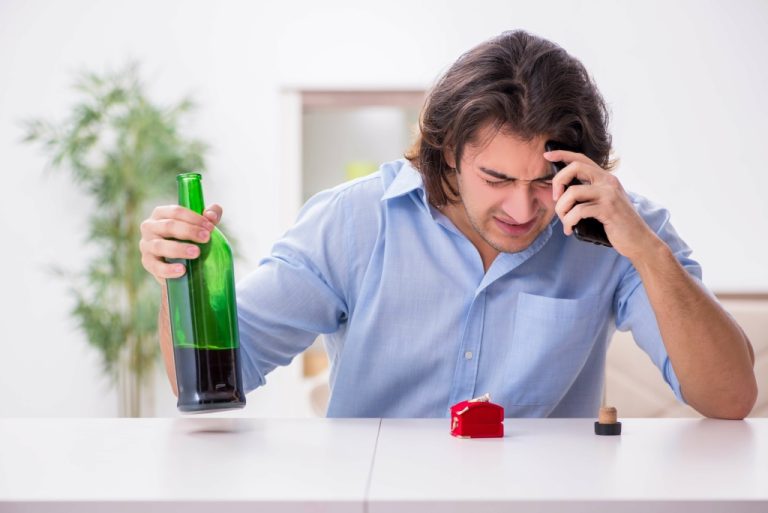Content
All civil servants aged 35–55 years in 20 London-based departments were invited to participate by letter and 73% agreed. Subsequent phases of data collection have alternated between postal questionnaire alone and postal questionnaire accompanied by a clinical examination. If you sleep better when you don’t drink, you might consider stopping alcohol use entirely.
Does alcohol help you sleep?
Alcohol may make it easier to fall asleep, but it doesn’t improve sleep quality. In fact, it can make our sleep more restless and can decrease our time spent in deep sleep stages.
Stage 1 is the lightest sleep stage, and Stages 3 and 4 are deepest. After Stage 4 we move into REM sleep, usually about 90 minutes after we have fallen asleep. Our first period of REM sleep lasts about 10 minutes and gets increasingly longer as we move through sleep cycles during the night. Because alcohol is a diuretic, people may wake up more often to go to the bathroom during the night if they have been drinking. Alcohol actually decreases how much antidiuretic hormone the body produces, causing lowered reabsorption of water. So, our kidneys kick into gear and our body loses more fluid through urination. After a night of drinking, people may wake up needing to go, even if their bladder doesn’t typically bother them at night.
How Does Alcohol Affect Sleep?
Prevalence and correlates of insomnia in a polish sample of alcohol-dependent patients. Quality of life, depression and anxiety in alcohol dependence.

The P2, N350 and P900 components measured at Cz showed no group differences for amplitude or latency. Cortisol rhythms show no evidence for disruption early in withdrawal or two to four weeks post drinking in two studies (Mukai et al. 1998; Fonzi et al. 1994). However, those with delirium tremens did have altered rhythms (Mukai et al. 1998; Fonzi et al. 1994). Kuhlwein, Hauger and Irwin reported lower cortisol early in the night and higher levels later alcohol and sleep in the night in their African American alcoholics after two weeks. To help assess how alcohol may be affecting your sleep, experts recommend an alcohol-free reset period, or what Dr. Martin called “an alcohol holiday,” lasting at least two weeks. “It can be very eye-opening to appreciate how much alcohol affects your sleep,” she said. A lot of people who think they have insomnia, she said, may just be drinking too much or too close to bedtime.
Treating Co-Occurring Insomnia and Alcohol Addiction
However, if you continue to have sleeping difficulties, reach out to a sleep specialist. Verywell https://ecosoberhouse.com/ Health articles are reviewed by board-certified physicians and healthcare professionals.
Just like you track your steps and what you eat, Sunnyside makes it easy to set goals such as cutting back on nightcaps by tracking your drinks, making it easy to change your habits long term. Alcohol reduces REM sleep, which is important for memory and learning, and results in fragmented sleep. The impact of alcohol on REM sleep depends on how much was consumed. Alcohol decreases one’s muscle tone, including the tissue in the airways. This can make things like sleep apnea and snoring significantly worse. Sleep apnea is a condition that causes one’s breathing to stop and start during sleep, and there are three different types.
How to sleep better after drinking alcohol
Two fifths (20.8%) of 4,065 subjects older than 15 years (95% CI [19.6, 22.1]) in one study were reported to experience insomnia symptoms at least three nights per week (Ohayon & Sagales, 2010). Daily drinking can have serious consequences for a person’s health, both in the short- and long-term. Many of the effects of drinking every day can be reversed through early intervention. Typically, alcohol withdrawal symptoms happen for heavier drinkers. Alcohol withdrawal can begin within hours of ending a drinking session. Stayingphysically activeduring the day can help you fall asleep at night, as well as promote overall health. Establishing good sleeping habits, also known assleep hygiene, is an essential first step in good sleep.
The influence of alcohol on sleep therefore needs to be evaluated by exploring both the short term effects on sleep and the long-term consequences . At present, most literature is based on cross-sectional studies and thus cannot assess direction of effects6.
The Connection Between Alcohol and Sleep
Studies show that heavy or moderate consumption can cause sleep apnea in people who don’t have a sleep disorder. People often ask, “Does alcohol makes you sleepy or help you sleep? ” A recent study found tha 20% of Americans use alcohol to fall asleep at night. The problem with this method is that even though it might help you fall asleep, what happens afterward would not be considered a good night’s sleep. College students may think that moderate drinking has no negative effects on learning and health. As little as one drink, however, can impair a person’s ability to get a good night’s sleep, which can lead to more significant problems.
What are the dangers and risks of alcohol and substance misuse? How can you prevent it? – University of Alabama at Birmingham
What are the dangers and risks of alcohol and substance misuse? How can you prevent it?.
Posted: Sun, 27 Nov 2022 08:00:00 GMT [source]